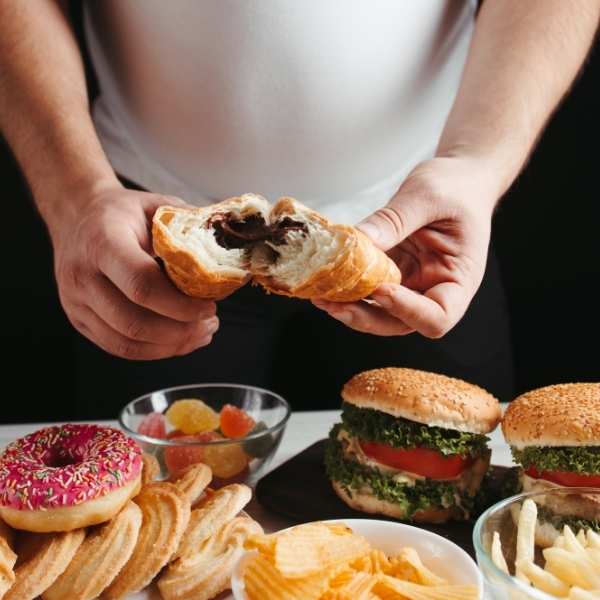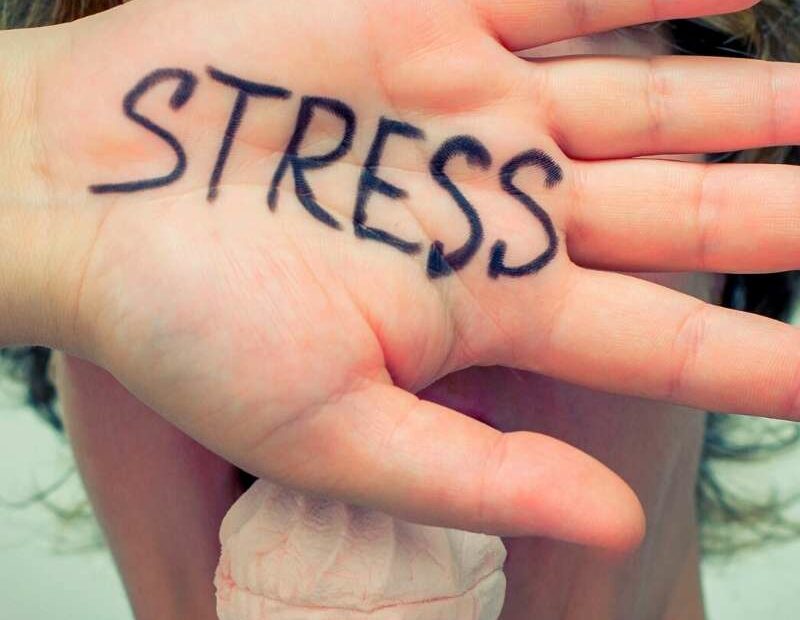5 Tips to Avoid Stress-Eating
``One is too many and a thousand never enough`` - 12 Step Fellowships
Hands up, who’s an emotional stress eater? Me, me, as I put both hands in the air. There is a big difference between hunger and craving. Our emotions trigger cravings. Simply having a drink of water, moving your body, and logging off your social media accounts can change your emotional craving and help prevent stress-eating. Hunger is your stomach signalling your brain that it needs fuel. There is a big difference.
Turning to food for emotional relief may seem like a simple habit to break. However, realizing that you need to adjust your eating habits is one thing.

Working out healthy alternatives to overeating when you’re feeling anxious, overworked and overwhelmed is another.
What is Stress Eating?
While food is a source of nourishment, it also plays many other roles in our lives. Beyond satisfying physical hunger, food often acts as a source of comfort when feeling down and a reward when celebrating accomplishments. Stress or emotional eating goes much deeper than just longing for unhealthy food. It is related to fulfilling our emotional needs. There is a reason why programs like Overeaters Anonymous and Detox Health Resorts like New Leaf exist. They can assist you in understanding what you are doing and then implement real-world changes and create new habits or rituals.
When you are feeling overloaded, your body triggers the production of cortisol, a stress hormone that induces sweet and salty cravings. When we reach for junk food, we subconsciously look to give our bodies a dopamine rush.
Unfortunately, as good as it feels to eat a whole tub of ice cream, we all know the moment only lasts for so long. Adjusting your relationship with food doesn’t mean that you can’t treat yourself from time to time. Enjoying a piece of cake or a slice of pizza isn’t inherently wrong. However, when you feel it is becoming a coping strategy, it’s time to change.
How to Change Stress Eating Habits
No matter how helpless you may feel right now, it is never too late to learn healthier ways of addressing your emotions and conquering your cravings. Here are our five tips on how to avoid stress-eating. When you find yourself going for the fridge, how do you stop?
To help overcome stress eating, follow along while covering five tips to making a positive change.
Tip 1: Recognise Eating Triggers

To begin creating a healthy relationship with food, ask yourself – what are my emotional triggers? Whether it is a particular place, situation or emotion, taking the time to understand the circumstances behind your actions is the first step to finding alternative solutions to stress-eating.
Knowledge and self-awareness are the first steps to change. We can’t change something we aren’t aware we do. Be open to suggestions and take note of what types of food you turn to when you get worried and stressed.
Tip 2: Practice Mindful Eating
When you’re feeling overwhelmed, you might not notice your body’s cues telling you to take it easy.
Slowing down and appreciating the textures and flavours of each bite will not only help you savour your food but will also reduce the chances of overeating.
Note how your body feels after eating comfort or ‘go to’ foods. Do you feel bloated, uncomfortable, irritable? These are clear signs from your body to indicate it’s not happy with this type of food.
Tip 3: Move Your Body
Engaging in weekly workout sessions is scientifically proven to improve mood, raise energy levels and reduce stress. While tensions can physically manifest in your neck, shoulders and back, moving your body and stretching it out can create a sense of comfort in a way that does revolve around food. However, be careful not to overdo the cardio training. Cardio can increase your appetite.
Be aware there are conflicting reports to say heavy cardio can decrease the appetite which is true but this is a short-term effect until the heart rate recovers and appetite returns. Walking on incline or uphills is a great form of steady fat burning and reduces cravings.

Tip 4: Get Plenty of Sleep

Sleep is essential to good organ function, longevity and body recovery. Stress-eating can cause many people to suffer from disruptive sleep, restless sleep patterns and insomnia. There are some healthy snack foods like almonds and walnuts that can assist in better sleep.
Giving your body enough time to recharge will reduce your appetite and help you manage your cravings. With a good night’s rest, you’ll experience higher productivity levels and less likely to reach for an unhealthy snack to give you an energy boost.
Tip 5: Connect With Friends and Family
Spending time around the people you are close to is a simple yet powerful way of decreasing your stress levels. Calling or meeting up with a friend will help you blow off steam, give you a change of scenery and remind you that you have a support circle that wants you to succeed. Schedule time out. Try and get more disciplined if you aren’t already and take the time you need to destress. Try massage, meditation or just deep breathing exersises. These are excellent ways to reduce the tension in your body and reduce distraction.
Final Thoughts
There will always be more than one way to change your stress eating habits. While this isn’t an exhaustive list of all methods to combat emotional eating, we hope you found one tip that you can implement in your daily life.
If you would like more information about wellness and our detox, weight loss packages please contact us or visit the wellness programs page.
